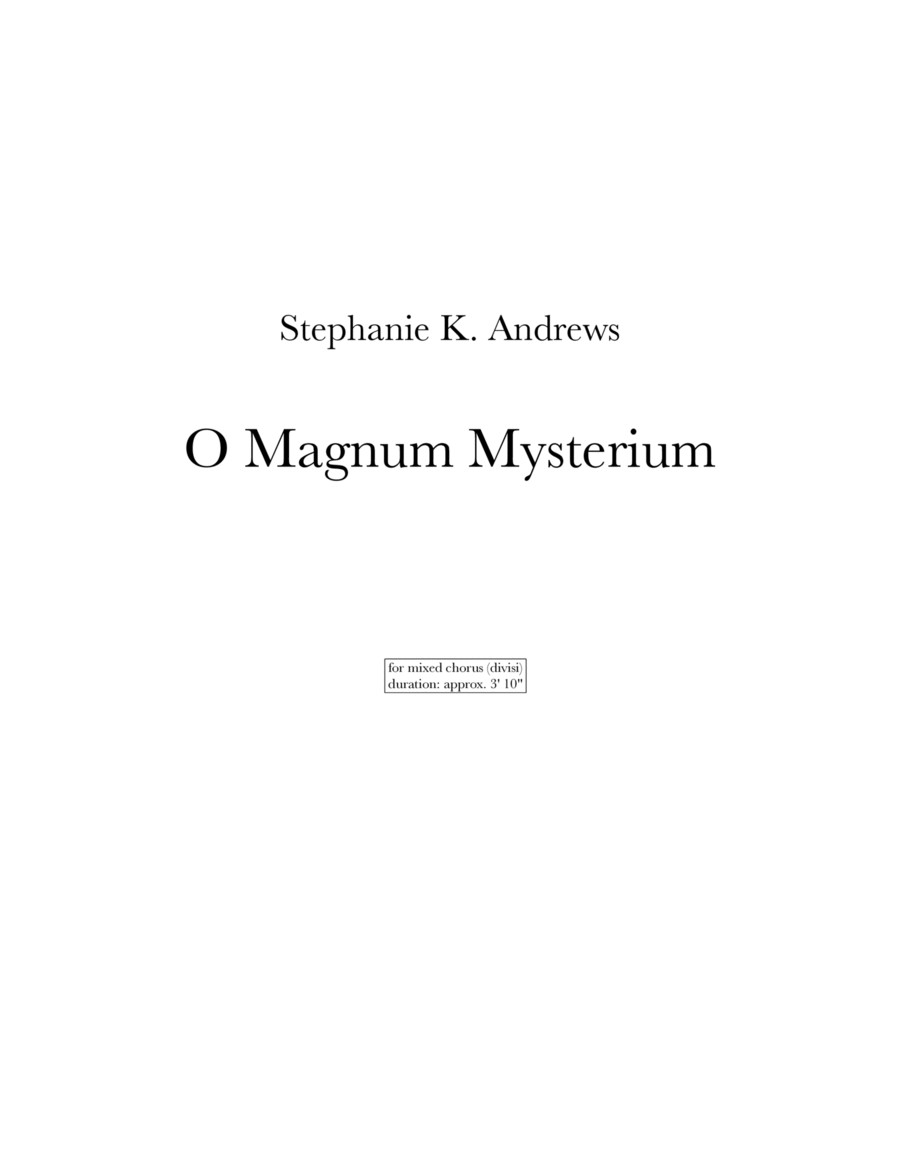Choral Choir (SATB divisi) - Level 4 - Digital Download SKU: A0.1272747 By Traditional. By Stephanie K. Andrews. 21st Century,A Cappella,Chamber,Christmas,Sacred. Octavo. 11 pages. Stephanie K Andrews #864941. Published by Stephanie K Andrews (A0.1272747). O Magnum Mysterium was composed in Austin, Texas in mid-2020 and lovingly dedicated to the Parish Choir at All Saints' Episcopal Church in Austin, Texas, the composer's home parish for over a decade, and to Gregory Eaton, Organist-Choirmaster of All Saints'. From measures 17-21, homage is paid to Irish composer Sir Charles Villiers Stanford (1852-1924), whose Beati quorum via has been sung by the All Saints' Parish Choir on a number of occasions.Written in the midst of a pandemic during which choirs could not sing together without risk of infection, this was composed in anticipation of the joyous day when we are all able to once again sing together, and as a reminder that, even in the darkest of times, wonder, beauty, awe, mystery, and the love and light of Christ remain with us now and forevermore.
